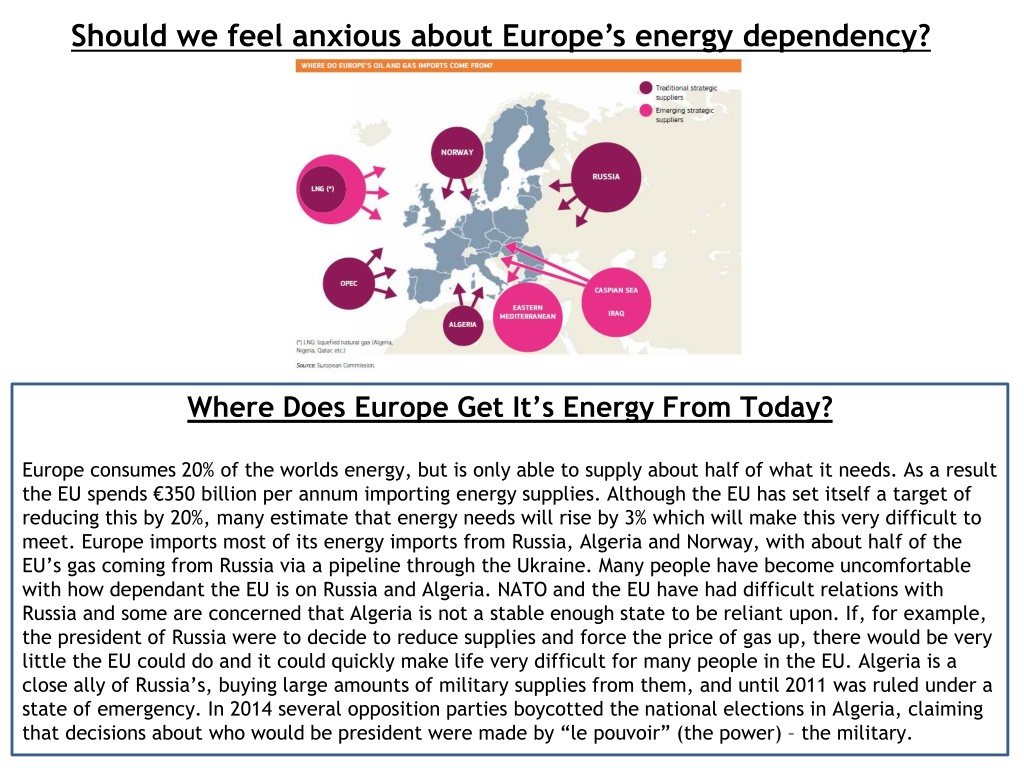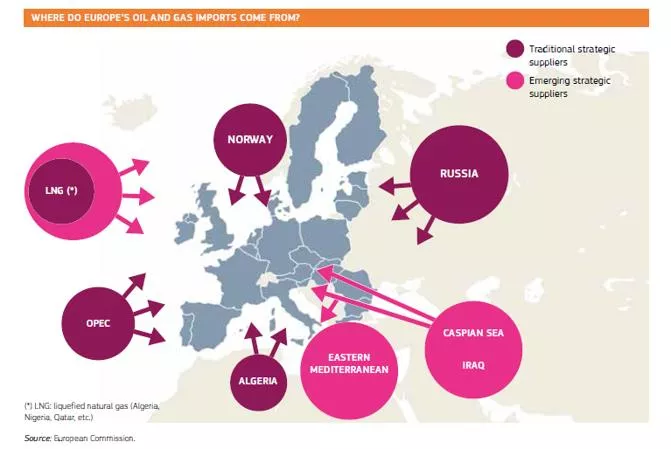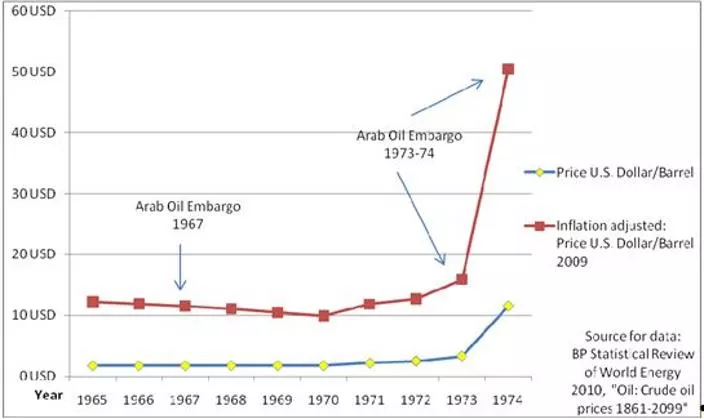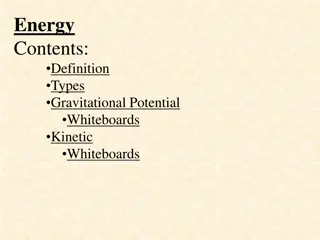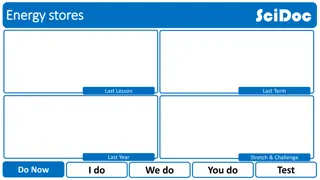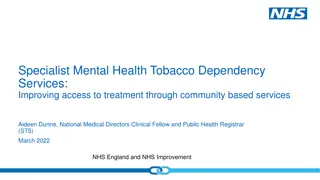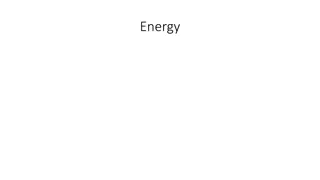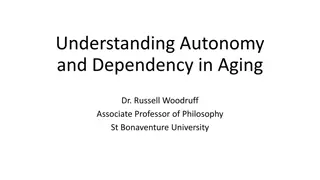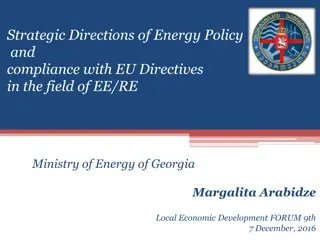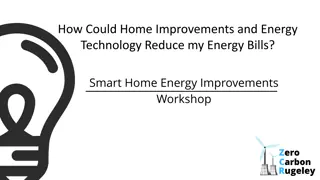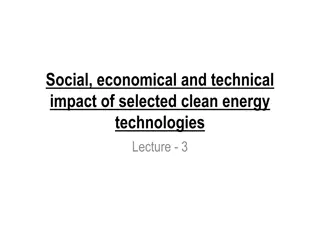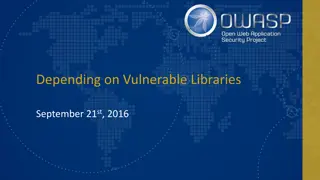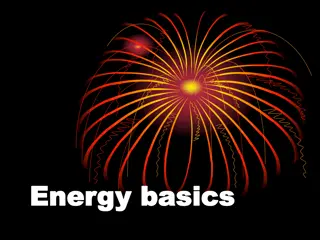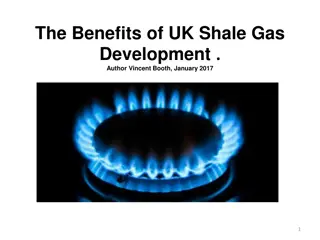Europe's Energy Dependency: Should We Be Anxious?
Europe's energy dependency raises concerns due to importing a large portion of energy supplies, with over half coming from Russia, Algeria, and Norway. The EU's struggles to meet energy demands amidst rising costs and geopolitical uncertainties are outlined, along with historical events like the 1973 Oil Price Crisis. Efforts towards diversification and sustainable energy sources are highlighted, emphasizing the need for reducing dependency on volatile suppliers.
Download Presentation

Please find below an Image/Link to download the presentation.
The content on the website is provided AS IS for your information and personal use only. It may not be sold, licensed, or shared on other websites without obtaining consent from the author.If you encounter any issues during the download, it is possible that the publisher has removed the file from their server.
You are allowed to download the files provided on this website for personal or commercial use, subject to the condition that they are used lawfully. All files are the property of their respective owners.
The content on the website is provided AS IS for your information and personal use only. It may not be sold, licensed, or shared on other websites without obtaining consent from the author.
E N D
Presentation Transcript
Should we feel anxious about Europes energy dependency? Where Does Europe Get It s Energy From Today? Europe consumes 20% of the worlds energy, but is only able to supply about half of what it needs. As a result the EU spends 350 billion per annum importing energy supplies. Although the EU has set itself a target of reducing this by 20%, many estimate that energy needs will rise by 3% which will make this very difficult to meet. Europe imports most of its energy imports from Russia, Algeria and Norway, with about half of the EU s gas coming from Russia via a pipeline through the Ukraine. Many people have become uncomfortable with how dependant the EU is on Russia and Algeria. NATO and the EU have had difficult relations with Russia and some are concerned that Algeria is not a stable enough state to be reliant upon. If, for example, the president of Russia were to decide to reduce supplies and force the price of gas up, there would be very little the EU could do and it could quickly make life very difficult for many people in the EU. Algeria is a close ally of Russia s, buying large amounts of military supplies from them, and until 2011 was ruled under a state of emergency. In 2014 several opposition parties boycotted the national elections in Algeria, claiming that decisions about who would be president were made by le pouvoir (the power) the military.
Should we feel anxious about Europes energy dependency? The 1973 Oil Price Crisis: On Yom Kippur 1973 Israel was invaded by several of her surrounding Arab states. Other nations quickly became involved in this with Russia supporting Egypt and the Arab states, and the West (particularly America and The Netherlands) supporting Israel. OPEC was angry at Western intervention, and therefore reduced production of oil and introduced a boycott of oil sales to America and The Netherlands, resulting in a significant and growing increase in the oil price. In the short term this led to emergency measures such a speed limits on British motorways being reduced to 50 mph, and Denmark placing similar limitations on travel. In the medium term countries planned to try and diversify their sources of energy, looking to develop renewable sources of energy that would reduce their energy dependency. However, as the price of oil dropped again political commitment to such programmes appeared to fall back. Lastly, some commentators have claimed that it did lasting damage to American and European industries, and the car industry in particular. Since the car industry relies on huge amounts of energy this period of increased prices allowed other producers such as Japan to grow.
Should we feel anxious about Europes energy dependency? The European Coal and Steel Community 1952 In 1952 France, West Germany, Belgium, Italy, the Netherlands and Luxemburg set up the European Coal and Steel Community. The development of this had been led by Robert Schuman, the French Foreign Minister and his aim had been to make war not merely unthinkable but materially impossible since these were the two most important commodities in armament production. In addition he hoped to end age old rivalries over natural resources, particularly along the Ruhr. The third aim was that this would lead to further supranational co-operation, leading eventually to a united Europe. It was the first step in the development of what is now the European Community, and was followed in 1957 by the creation of the European Economic Community (EEC) and Euratom the European Atomic Energy Community set up to create a European market for atomic energy. This still exists today, and is currently leading work on the International Fission Reactor, a scientific project that has the potential to create limitless clean energy. Where Europe gets its energy from today, from the EEA 2014
Should we feel anxious about Europes energy dependency? The 2009 Gas Crisis in Ukraine The 2009 gas crisis in the Ukraine was sparked by Gazprom (the Russian gas company) cutting off gas supplies to the Ukraine, and as a result to South Eastern Europe. Gazprom said that Ukraine was not making enough effort to repay its unpaid bills, Ukraine said that Gazprom was unfairly increasing its prices. Critics remain divided about who is to blame for the crisis, but for Ukrainian people their gas was cut off in January, with potentially dire consequences. As a result the EU said that Russia and the Ukraine had forfeited their status as reliable gas suppliers . Since there had been previous similar crises (in 2006 for example) the question was raised about why this statement had been made only in 2009. The answer is generally assumed to be that 44% of Europe s gas comes from Russia, and 80% of this comes via Ukraine - so the EU is at present reliant. One consequence of this crisis was much talk of further diversification of energy supplies (although action with this has been very limited) and it gave impetus to discussions about new pipelines that would not flow through the Ukraine, such as the South Stream (through the Black Sea to Italy) and Nabucco (from the Caspian Region to Austria). The European Council on Foreign Affairs commented on the EU s unity in the face of this threat, but also acknowledged that this unity was fragile should such a threat develop into a full blown crisis.
Should we feel anxious about Europes energy dependency? What was the impact of the Fukushima disaster on Europe s energy dependency? In March 2011 the nuclear reactor at the Fukushima nuclear power plant in Japan overheated leading to a meltdown and the release of radioactive material, in part as a result of several explosions. This revived memories of the previous disaster in 1986 in Chernobyl in Russia, and led many to question the amount of nuclear power used in the EU. Germany has now pledged to be free of nuclear power by 2020, and following the discovery of cracks in 2 nuclear power plants in Belgium, others are considering following suit. In response the EU has greatly increased its regulations for safety within the nuclear industry, with a directive in 2013 on monitoring radioactivity for example. In 2014 the European Commission released an Energy Security Strategy document, which was looking to find ways to reduce Europe s energy dependency, and appeared to see nuclear energy as a key part of this. Currently nuclear power is used for about 1/3 of Europe s electricity, and about 14% of all European energy needs. Although the uranium used does need to be imported, the suppliers are relatively diverse (Kazakhstan, Canada, Russia, Niger, Australia) and Europe is a leading manufacturer of enriched uranium. Pictured above are model simulations (using dye) of the long-term dispersal of Cs-137 released into the Pacific Ocean off Fukushima following the Daiichi nuclear accident, 43 days, 367 days, and 1412 day after (left to right). (1)
